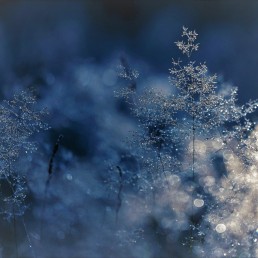What Is Wicca
Wicca is a modern, nature-centred spiritual tradition that celebrates the cycles of life, the sacredness of nature, and the connection between humanity and divinity. Rooted in the broader Pagan movement, Wicca draws inspiration from ancient pre-Christian religions, folklore, and ceremonial magic. Emerging in the mid-20th century, it is both a revival and reinterpretation of older spiritual practices, tailored to contemporary needs and values. Wicca emphasises personal growth, ethical living, and harmony with the natural world, making it a vibrant spiritual path for many today.
Origins and Development of Wicca
Wicca was introduced to the public in the 1940s and 1950s by Gerald Gardner, a British occultist who claimed it was a continuation of ancient European witchcraft traditions. While Gardner’s claims of historical continuity are debated, it is widely accepted that Wicca is a modern synthesis of ancient beliefs, ceremonial magic, and Gardner’s innovations. Influences on Wicca include the works of folklorist Margaret Murray, who proposed the existence of a pre-Christian “witch-cult,” and esoteric traditions like Hermeticism and Theosophy.
Doreen Valiente, a key collaborator with Gardner, contributed significantly to Wicca’s development by refining its rituals and texts. Alex and Maxine Sanders later founded Alexandrian Wicca, a related tradition emphasizing ceremonial magic. Over time, Wicca has evolved into a diverse spiritual movement, encompassing structured traditions such as Gardnerian and Alexandrian Wicca, as well as eclectic practices tailored to individual preferences.

Core Beliefs of Wicca
Wicca is not a dogmatic religion, and beliefs vary among practitioners and traditions. However, several principles are central to most forms of Wicca:
-
- Reverence for Nature:
Nature is sacred in Wicca. Wiccans view the earth, its cycles, and its elements—earth, air, fire, water, and spirit—as divine manifestations. This reverence extends to the changing seasons, lunar phases, and all living beings, emphasizing interconnectedness and respect for the environment. - Duality of Divinity:
Wiccans typically honour a duality of divine energies represented by the God and the Goddess. These deities embody masculine and feminine principles and are often associated with life, death, and rebirth. Some Wiccans worship specific deities from ancient pantheons, such as the Celtic, Norse, or Greek gods, while others view the God and Goddess as archetypes of universal energies. - The Wiccan Rede:
The Wiccan Rede is a central ethical principle, expressed as: “An it harm none, do what ye will.” This encourages personal freedom while emphasising responsibility and avoiding harm to oneself or others. - The Threefold Law:
Many Wiccans adhere to the Threefold Law, which suggests that the energy one sends into the world—whether positive or negative—returns threefold. This belief underscores the importance of mindfulness and ethical behavior. - Magic and Spiritual Practice:
Magic, or “magick,” is a natural force that Wiccans work with to align their intentions with universal energies. It is seen as a tool for personal transformation, healing, and creating positive change.
- Reverence for Nature:
Rituals are an essential part of Wiccan practice, providing a framework for connecting with the divine, celebrating nature, and performing magic. Common rituals and practices include:
- The Wheel of the Year:
Wiccans celebrate eight seasonal festivals, known as Sabbats, that mark the cycles of the sun and earth. These include:- Samhain: The Wiccan New Year, honoring ancestors and the cycle of life and death.
- Yule: The Winter Solstice, celebrating the rebirth of the sun.
- Ostara: The Spring Equinox, a time of renewal and growth.
- Beltane: A festival of fertility and creativity.
- Esbats:
In addition to Sabbats, Wiccans hold rituals during the full moon, known as Esbats. These ceremonies are often used for meditation, magical workings, and communion with the divine. - Casting a Circle:
Before rituals, Wiccans typically cast a circle to create a sacred and protected space. This practice helps focus energy and separates the ritual from mundane life. - Sacred Tools:
Wiccans use specific tools in their rituals, including:
-
- Athame: A ritual knife symbolising will and intent.
- Chalice: A cup representing the element of water and the feminine divine.
- Pentacle: A disc inscribed with a pentagram, symbolizing the element of earth and protection.
- Wand: A tool for directing energy, often associated with air or fire.
-
- Spellcraft:
Spells are a form of focused intention, often involving symbolic actions, words, and tools. Common spellwork includes rituals for healing, protection, prosperity, and personal growth.
- Spellcraft:
Traditions within Wicca
Wicca encompasses various traditions, each with its own focus and practices:
- Gardnerian Wicca:
The original tradition founded by Gerald Gardner, emphasizing structured rituals and coven-based practice. - Alexandrian Wicca:
Founded by Alex Sanders, this tradition shares similarities with Gardnerian Wicca but incorporates more ceremonial magic.
- Eclectic Wicca:
Many modern practitioners follow an eclectic approach, blending elements from multiple traditions to create a personalized spiritual path. - Dianic Wicca:
A feminist branch of Wicca that focuses on the worship of the Goddess and often excludes the God.
Wicca is often misunderstood due to its association with witchcraft, a term historically stigmatised in many cultures. However, Wiccans emphasise that their practices are rooted in positivity, respect for nature, and ethical living. Wicca is not Satanic and has no connection to the worship of a devil, a concept specific to Christianity.

